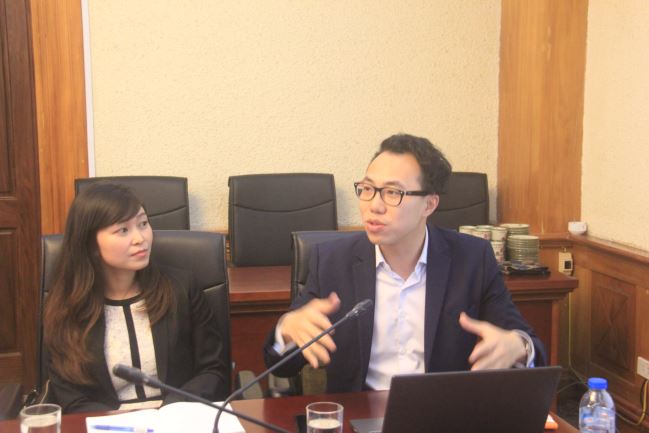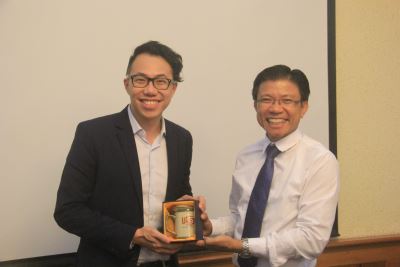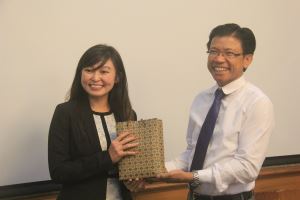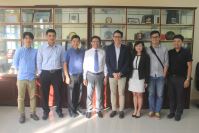Founded in 1905, NUS, a school with a tradition of training managerial and technical personnel, has become a complex global organization. The increased autonomy achieved after 2006 has facilitated organizational change, optimizing the management of resources and services for faculty, staff, and students. This corporateization has given NUS greater autonomy and flexibility in its policies regarding human resource management.
Mr. Yong Min Ho stated that, with the motto of considering universities as places to nurture talent, NUS establishes clear criteria for a top-tier university. Specifically, NUS develops its own working methods for staff and leaders, encourages employees with annual bonuses and incentives, and establishes its own principles and values. For example, in addition to a basic monthly salary, based on work performance, NUS employees also receive additional income and a one-time annual bonus. Employees must meet basic work criteria such as selfless dedication to NUS, a spirit of cooperation with other employees, creativity in finding solutions, and inspiring colleagues. Mr. Yong Min Ho said that above all, they must possess a never-give-up/confident spirit; and in fact, NUS has produced such individuals.

Mr. Yong Min Ho presented on NUS's human resource management practices.
Regarding the culture of change, Ms. Ting Min Joon emphasized that NUS always strives to balance the individual strengths of its staff with the overall direction of the university. From an individual perspective, NUS helps each staff member discover their strengths through tools such as the WoW Avatar personality test; through this, each person can contribute to the university according to their own talents and priorities. From a collective perspective, NUS sets three guiding principles for all staff members: belief in the mission of higher education, confidence in their ability to make a difference, and a desire to create change within their own institution.
Following their presentation, Mr. Yong Min Ho and Ms. Ting Min Joon received questions and comments from the audience on issues such as the reception and training of international students at NUS, differences in evaluating staff members with different functions, the importance of student affairs to the overall development of the university, and how to determine performance-based bonuses for each staff member. The two speakers answered the questions concisely and appropriately.

Associate Professor Hoang Anh Tuan presents a commemorative gift to Mr. Yong Min Ho.

Associate Professor Hoang Anh Tuan presents a commemorative gift to Ms. Ting Min Joon.

Associate Professor Hoang Anh Tuan and representatives of the university leadership took a commemorative photo with the two speakers.
The National University of Singapore (NUS) has 17 faculties and schools located across 3 campuses. Currently, NUS is the public university with the most academic programs in Singapore. Over 100 prestigious universities in Europe, the US, Australia, New Zealand, Japan, and China regularly exchange students with NUS and recognize NUS programs and degrees.
Author:Tran Minh
Newer news
Older news